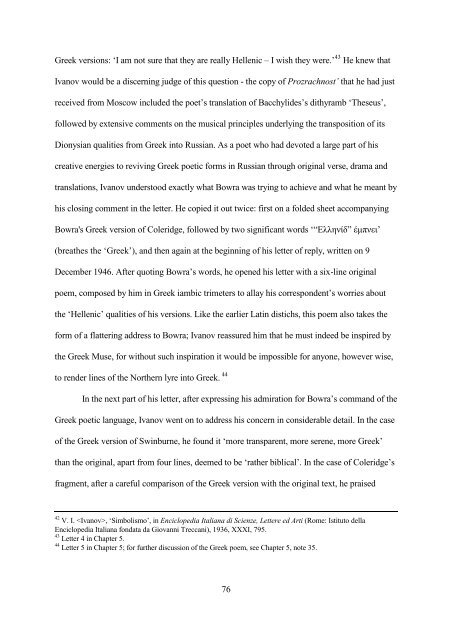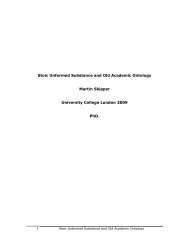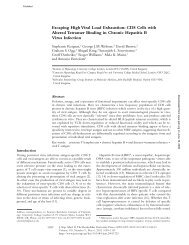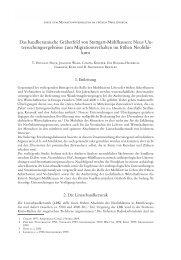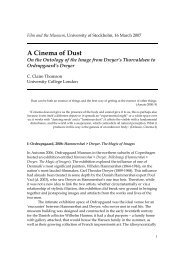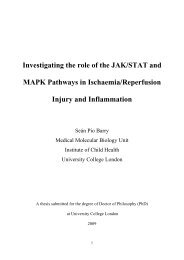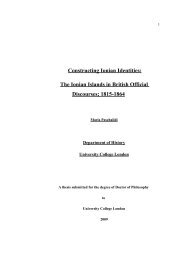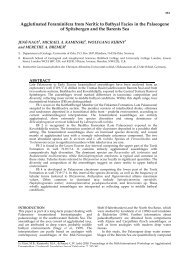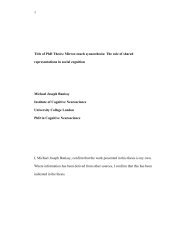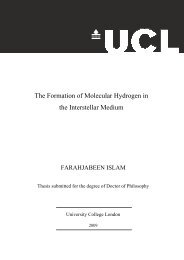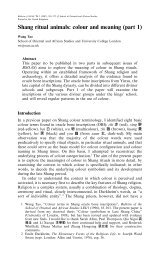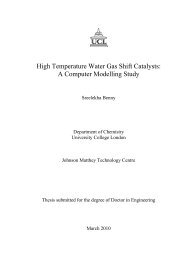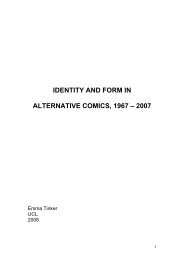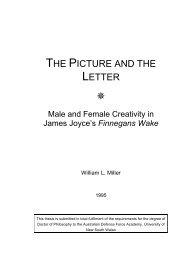Vyacheslav Ivanov and C.M. Bowra: a ... - UCL Discovery
Vyacheslav Ivanov and C.M. Bowra: a ... - UCL Discovery
Vyacheslav Ivanov and C.M. Bowra: a ... - UCL Discovery
Create successful ePaper yourself
Turn your PDF publications into a flip-book with our unique Google optimized e-Paper software.
Greek versions: ‘I am not sure that they are really Hellenic – I wish they were.’ 43 He knew that<br />
<strong>Ivanov</strong> would be a discerning judge of this question - the copy of Prozrachnost’ that he had just<br />
received from Moscow included the poet’s translation of Bacchylides’s dithyramb ‘Theseus’,<br />
followed by extensive comments on the musical principles underlying the transposition of its<br />
Dionysian qualities from Greek into Russian. As a poet who had devoted a large part of his<br />
creative energies to reviving Greek poetic forms in Russian through original verse, drama <strong>and</strong><br />
translations, <strong>Ivanov</strong> understood exactly what <strong>Bowra</strong> was trying to achieve <strong>and</strong> what he meant by<br />
his closing comment in the letter. He copied it out twice: first on a folded sheet accompanying<br />
<strong>Bowra</strong>'s Greek version of Coleridge, followed by two significant words ‘“Ελληνίδ” έμπνει’<br />
(breathes the ‘Greek’), <strong>and</strong> then again at the beginning of his letter of reply, written on 9<br />
December 1946. After quoting <strong>Bowra</strong>’s words, he opened his letter with a six-line original<br />
poem, composed by him in Greek iambic trimeters to allay his correspondent’s worries about<br />
the ‘Hellenic’ qualities of his versions. Like the earlier Latin distichs, this poem also takes the<br />
form of a flattering address to <strong>Bowra</strong>; <strong>Ivanov</strong> reassured him that he must indeed be inspired by<br />
the Greek Muse, for without such inspiration it would be impossible for anyone, however wise,<br />
to render lines of the Northern lyre into Greek. 44<br />
In the next part of his letter, after expressing his admiration for <strong>Bowra</strong>’s comm<strong>and</strong> of the<br />
Greek poetic language, <strong>Ivanov</strong> went on to address his concern in considerable detail. In the case<br />
of the Greek version of Swinburne, he found it ‘more transparent, more serene, more Greek’<br />
than the original, apart from four lines, deemed to be ‘rather biblical’. In the case of Coleridge’s<br />
fragment, after a careful comparison of the Greek version with the original text, he praised<br />
42 V. I. , ‘Simbolismo’, in Enciclopedia Italiana di Scienze, Lettere ed Arti (Rome: Istituto della<br />
Enciclopedia Italiana fondata da Giovanni Treccani), 1936, XXXI, 795.<br />
43 Letter 4 in Chapter 5.<br />
44 Letter 5 in Chapter 5; for further discussion of the Greek poem, see Chapter 5, note 35.<br />
76


